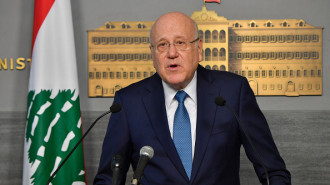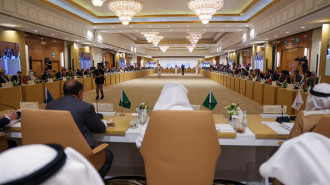Israel seeks to limit Biden criticism of Saudi Arabia, UAE, and Egypt
Israel is lobbying the incoming Joe Biden administration to hold back on confronting the UAE, Saudi Arabia and Egypt over human rights issues and the ongoing war in Yemen, a recent media report has claimed.
Israel fear that US harsh criticism of Gulf states' human rights records and their bloody role in the war in Yemen could affect regional efforts to counter Iranian influence.
Egypt, which has become increasingly close to Israel in recent years, could also receive flak from the Biden administration over human rights abuses in the country, a prospect that is worrying some Israeli officials.
"We were very close to losing Egypt several years ago and our message to the Biden administration will be: 'Take it slow, dramatic changes took place, don't come with predispositions and don't harm relations with Saudi Arabia, Egypt and the UAE,'" a senior Israeli official told Axios.
Cooperation with Gulf countries and Egypt is central to Israel's security ambitions in the region, which is aimed primarily at countering Iran.
The Israeli official claimed that the recent normalisation agreements with Arab states have allowed them to encourage Saudi Arabia and Egypt to improve their human rights records, although there is no proof to back up this.
Israel also has no official relations with Saudi Arabia.
The official warned that if relations deteriorate between Riyadh, Cairo and Washington, it could lead to a pivot towards Russia and China.
The issue of human rights was a tenet of Biden's foreign policy ambitions and throughout his election campaign was critical of Saudi Arabia, and in particular, its role in the devastating war in Yemen.
"I would make it very clear we were not going to in fact sell more weapons to them... [and] end the sale of material to the Saudis where they're going in and murdering children," he said.
This contrasts sharply with Donald Trump's warm relations with Saudi leaders, and his efforts to limit the impact on Riyadh of growing discontent in the US political establishment against the kingdom.
Washington has also introduced other measures that are seeen as favourable to Saudi Arabia.
Recently the US announced its plan to designate the Iran-backed Houthi rebels in Yemen as a "terrorist organisation".
This decision quickly came under fire from Democratic Senators, who highlighted the humanitarian crisis in the country in an open letter to the out-going Secretary of State Mike Pompeo.
"This designation would almost certainly prevent the critical delivery of food, medical supplies and other items necessary to combat both Covid-19 and famine," it read.
"In fact, designating the Houthi movement will be perceived as politically motivated and will undermine the credibility of US counterterrorism programs and policies, which serve as a first line of our nation's defence."
Democrats could seek to reverse this decision upon Biden’s accession on 20 January.
Read more: What a Biden presidency means for US ties with Israel
Following Biden's electoral victory, former US Ambassador to Tel Aviv, Martin Indyk, highlighted the unease at which Israel, the UAE, and Saudi Arabia view the policies of the incoming president.
"When they look at Joe Biden they don't see him as the incoming president, but as Barack Obama's Vice-President. And they had a real problem with Obama's policy," he told the US think tank, the Council on Foreign Relations (CFR).
"There's a real concern in both the Israeli leadership and the Gulf Arab leadership and President Sisi of Egypt that what we're going to see is a return to policies deeply problematic to them."
Follow us on Facebook, Twitter and Instagram to stay connected
![Biden and Netanyahu [Getty] Biden and Netanyahu [Getty]](/sites/default/files/styles/large_16_9/public/media/images/1AA854D8-BE9E-4E6C-AAE3-67E9E8C9A844.jpg?h=d1cb525d&itok=qFaRTQq6)




 Follow the Middle East's top stories in English at The New Arab on Google News
Follow the Middle East's top stories in English at The New Arab on Google News


